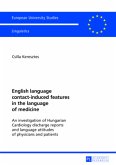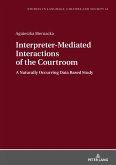The focus of this book is to investigate a routine yet disruptive activity at the hospital - telephone interaction - and to expose how nurses and physicians coordinate at distance in view of delivering efficient patient care. Data consists of 130 audio-recorded calls between nurses and physicians at an acute care hospital in Switzerland. The main activity of these calls consists of the nurse requesting the physician's intervention, namely, the physician designating a course of action to be undertaken in the future.
By adopting a conversation analytic approach, the author identifies the formats through which nurses implement requests to physicians. She distinguishes between requests that contain an explicit formulation of a candidate course of action (e.g. Can you do X), and less transparent formats, such as reports of problems. The latter consist of presenting a series of facts that convey the existence of a situation portrayed as problematic and making relevant the physician's intervention. To secure the interventionable character of the report, nurses refer to facts remediable only by a medical authority, such as deficiencies contingent to the provision of care or a patient's medical status.
By adopting a conversation analytic approach, the author identifies the formats through which nurses implement requests to physicians. She distinguishes between requests that contain an explicit formulation of a candidate course of action (e.g. Can you do X), and less transparent formats, such as reports of problems. The latter consist of presenting a series of facts that convey the existence of a situation portrayed as problematic and making relevant the physician's intervention. To secure the interventionable character of the report, nurses refer to facts remediable only by a medical authority, such as deficiencies contingent to the provision of care or a patient's medical status.








